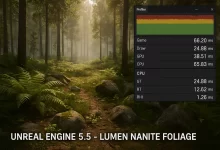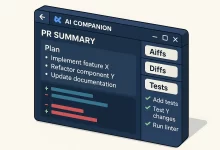Today, July 9, 2025, marks a landmark moment in technology history: Nvidia has become the first publicly traded company to reach a $4 trillion market capitalization. Watching share prices climb past the $1,000-per-share threshold felt surreal—like witnessing a rocket launch from your laptop screen.
Just a year ago, few would’ve predicted such a meteoric rise. Back then, Nvidia was already riding high on strong gaming GPU sales and early AI traction. But the explosion of generative AI—chatbots, image synths, large-language models—pushed data-center demand for its specialized processors into overdrive. Suddenly, every major cloud provider and enterprise wanted Nvidia’s chips to power their “AI factories.”
Over the past six months, Nvidia shares jumped more than 50%, driven by better-than-expected earnings reports and bullish guidance. Their newest “Blackwell”-architecture GPUs delivered a 30% boost in inference performance per watt, which meant lower power bills and higher throughput for customers. At a recent developer conference, Jensen Huang quipped that “running AI without Nvidia is like flying cross-country with a paper airplane.” That line got a few laughs, but investors took note—humor and hype combined.
Behind the scenes, it wasn’t just hyperscalers ramping up orders. Automotive partners integrating AI into vehicles, bioinformatics firms crunching genomic data, even financial institutions backtesting models—all clamored for Nvidia’s H100 and H200 chips. Supply chains strained, fab capacity maxed out, and for the first time, Nvidia warned of potential lead-time extensions. Yet, instead of angering buyers, the scarcity only heightened the sense of indispensability.
Meanwhile, rivals scrambled. AMD’s MI300 series and Intel’s Gaudi accelerators made respectable showings, but neither could match Nvidia’s software ecosystem. CUDA remains the gold standard for AI development, and the company’s end-to-end stack—from chip design to management frameworks—kept enterprises locked in. Analysts now peg Nvidia’s share of the AI accelerator market north of 70%, a level of dominance rarely seen outside of consumer staples.
Of course, hitting $4 trillion brings fresh scrutiny. Regulators are eyeing market concentration, and some debate whether Nvidia’s valuation truly reflects long-term fundamentals or a frothy “AI mania.” Price-to-sales ratios exceed 50×, compared with single digits for traditional hardware companies. Hedge funds have started shorting bits of the rally, betting on a correction once hype subsides. Still, if quarterly guidance for Q3 continues to beat expectations, any pullback could be shallow.
Investors reacted to today’s milestone by rotating small gains into other tech names—Microsoft, Alphabet, and Arm Holdings saw healthy upticks as well. After all, Nvidia’s rise has lifted the entire AI hardware sector. And downstream, software and services firms building on Nvidia’s platforms stand to benefit from renewed corporate spending on AI projects.
On a personal note, I remember chatting with a friend who runs a mid-sized AI startup. He told me he once had to cap GPU usage when budgets got tight—now, thanks to more efficient Blackwell chips, his team runs twice as many experiments at half the cost. That kind of hands-on impact makes Nvidia’s financial feats feel real, not just abstract ticker-symbol triumphs.
Looking ahead, the big question is how Nvidia sustains this pace. Upcoming Blackwell+ chips will push performance further, and rumors swirl about in-house networking silicon to link GPUs more tightly than current InfiniBand setups. Nvidia is also betting on software-as-a-service models, where customers pay subscription fees for managed AI pipelines. If those bets pay off, future market-cap targets might read $5 trillion or even $6 trillion.
For now, though, today is about celebrating a true industry milestone. Nvidia’s journey from graphics pioneer to AI powerhouse underscores how rapidly technology landscapes can shift. Twenty years ago, we gawped at companies crossing the $1 trillion mark; today, one firm stands quadruple that size, fueled by data-hungry algorithms and a relentless drive to push silicon limits.
Whether you view this as the dawn of a new tech era or a peak that will test gravity, there’s no denying the significance: Nvidia at $4 trillion cements AI hardware as one of the most valuable global industries. And for everyone from Wall Street analysts to bedroom coders, it’s a vivid reminder that in technology, the next breakthrough can redefine markets overnight.

 FoxDoo Technology
FoxDoo Technology











